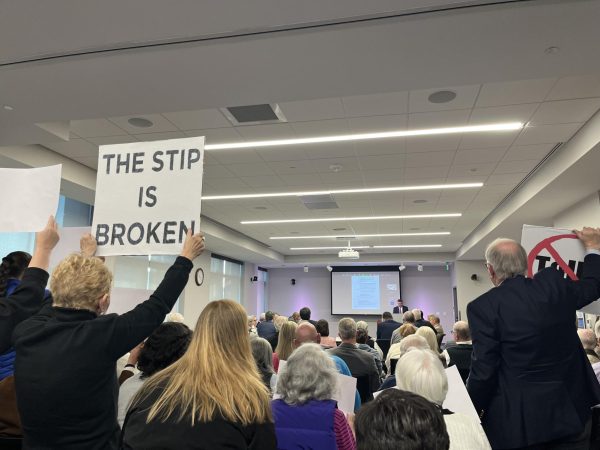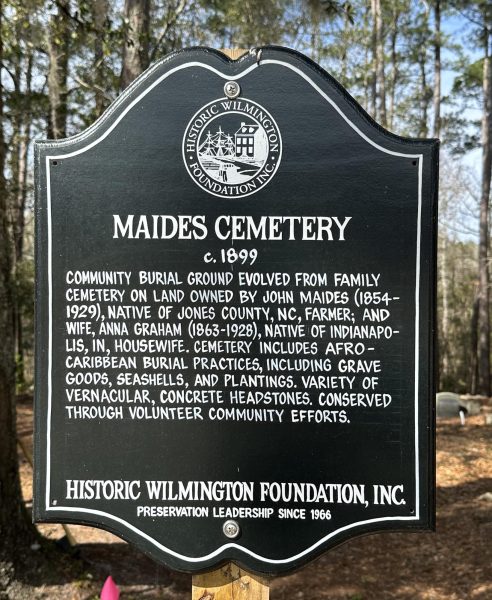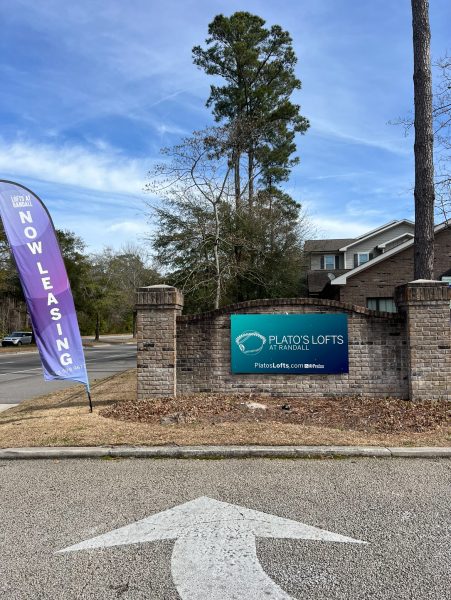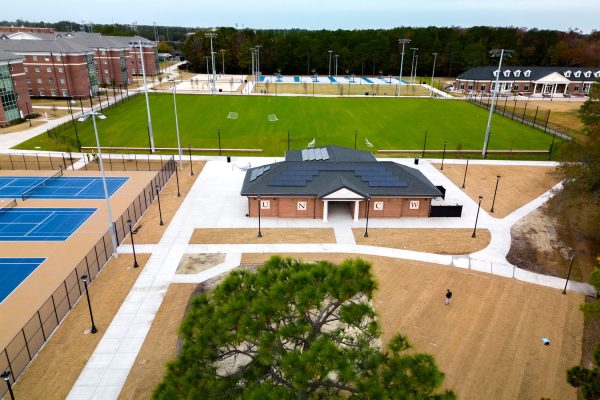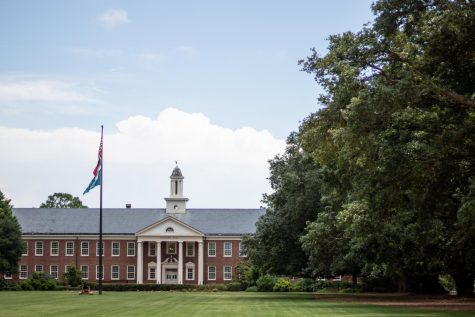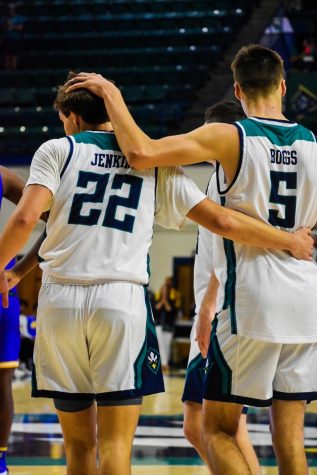Administration bans part of The Century Project exhibit at UNCW
February 26, 2009
UNCW administration recently banned specific nude pictures of women under the age of 18 from The Century Project photo exhibit that will be displayed in the Warwick Ballroom March 2-6.
According to a news release that was sent out Feb. 24, “The ban was declared after receipt of a complaint from Oklahoma. It claimed that The Century Project is pornographic and harms women. It was sent to colleges where the project is to appear, telling them to reject it.”
John Foubert, Associate Professor at Oklahoma State University, issued these six letters to colleges hosting the exhibit, imploring them to reconsider.
Marketing and Communications spokesperson Cindy Lawson issued a statement on behalf of the university that reads, “Because the exhibit does include women and girls of all ages, we wanted to be sensitive to concerns raised about nude photos of young people under the age of consent. Due to these concerns, the university requested that Century Project photographer Frank Cordelle remove any photos of minors from the exhibit when it runs at UNCW; he has agreed.”
Disappointed by this news, Cordelle regrets UNCW’s decision of cutting 18% of his photographs.
“If it weren’t for the fact that it happened at the last minute, I would have pulled the entire exhibit,” Cordelle said. “It’s a real violation of the first amendment and to academic freedom.”
He added, “Part of a university’s unspoken creed is to encourage independence and present people with ideas that they may or may not care for. I think for example if Karl Marx were still alive most universities would love to have him speak, but that doesn’t mean they’re endorsing communism. They’re just willing to expose their students to ideas.”
Dr. Paul Rapoport of Heureka Productions and publisher of the book “Bodies and Souls: The Century Project” stated, “UNCW was misinformed about The Century Project. I feel that this [decision] does violence to the exhibit and it’s very serious. American body phobia and sexual obsession are simply continuing to thrive because of it.”
He added, “Life doesn’t begin at 18. There are issues, problems and solutions that are talked about by the children in this exhibition that are very important. Their experiences can be absolutely unique and they’re crucial to the development process and body image.” The Century Project was developed in the 1980’s and has toured annually since 1992. It is a chronological series of nude photographic portraits of more than one hundred girls and women from birth to elderly ages. Most images are accompanied by statements written by the women themselves who exist in all shapes, sizes, and have been through many life experiences from sexual assault to body augmentation.
According to Rapoport, both the book and exhibit have received extraordinary praise from educators, psychiatrists, counselors, and the general public.
“This project has run into no legal problems in his entire history,” Rapoport said. “It’s remarkable that someone would attempt so grotesquely to derail a project that has had 18 years of success around the country.”
March 2 will mark Cordelle’s 63rd time of displaying his exhibit on a college campus.
The Century Project was featured in Randall Library at UNCW in 2002 and received unanimously positive reviews according to Janet Ellerby, Interim Director of the Women’s Resource Center.
“I got nothing but praise for it, no controversy,” Cordelle said. “I remember there were 1,986 people who came to the exhibit in five days and it remains the attendance record for The Century Project in 60 plus college campuses.”
“I think that it’s an amazing, powerful exhibit and I’m so sorry it won’t be the full version,” Ellerby said. “The women aren’t eroticized, not sexualized. They’re real and honest, not air brushed ideals that we see every time we open a magazine. What Frank is trying to do is help women and men talk about the representation of the women’s body in very open and compelling ways. This exhibit invites those kind of conversations.”
She added, “Women don’t really know that much about one another and we’re certainly not wearing veils but we’re taught modesty and the only ones we get to know are the impossible ones that aren’t even real.”
“The project has gotten hundreds of people into therapy and two have told me that after experiencing it they decided not to have breast implants,” Cordelle said. “In one case a girl who had been raped and was highly suicidal saw the exhibit and said “if they can do it, I can do it too” and got into therapy.”
Another woman who had a history of breast cancer in her family was scared to go to the doctor, but after seeing the pictures of women who had masectomies, went to the doctor and claimed that the exhibit saved her life.
“The Century Project’s biggest virtue is that it puts personal taboo issues on the table in a way that makes it okay to talk about them,” Cordelle said. “Women tend to be comforted, enabled and empowered to run across others who have shared some experiences with them. A lot of college students said it takes the fear of aging out of them.”
He added, “Many of the women that I photograph have had a lousy sexual experience and the actual act of being photographed in the nude can be a significant therapeutic step in their process. They are once again making themselves vulnerable under circumstances that nothing will happen to them.”
Foubert, on the other hand, feels very strongly about stopping this exhibit in schools around the country.
“Men who view a lot of the images similar to the ones in the Century Project are more likely to commit sexual violence than those who don’t,” Foubert said. “Being one who has fought against sexual violence for many years and seen the research on the connection between the types of images in the project and the types of images that have been shown through research to lead to sexual coercion and violence committed by college men, I don’t think that public colleges should be funding exhibits such as these.”
Foubert has mixed feelings about the decision UNCW administration has made about the Century Project. On one hand he considers it a small victory because “underage girls will not be exploited.” On the other hand, he feels harm is still being done by showing the exhibit because it is “a grave injustice to women and they are objectifying women in a public place.”
“I haven’t seen the entire exhibit, just what’s on the website and what’s on there is enough for me to determine that the exhibit includes photographs that research has shown connects to violence against women,” Foubert said. “It feeds the culture in which rape exists and feeds the culture in which men objectivity women and look at them as objects and not as people.”
He added, “I hope that the public and the campus community will decide to exert whatever influence they can to see that exhibits such as these do not get funded at a public institution at the caliber of UNCW.”
According to Rapoport, William and Mary, which is expected to host the exhibit next, has decided to move the display from the student center to an art museum off-campus because of Foubert’s letter.
“In American culture we are uptight about nudity and the female body,” Cordelle said. “I think presenting real nudity in a non-confrontational fashion can have a beneficial effect. The exhibit is an important piece of this puzzle if you will.”
Note: Provost Brian Chapman was not available for questioning.








